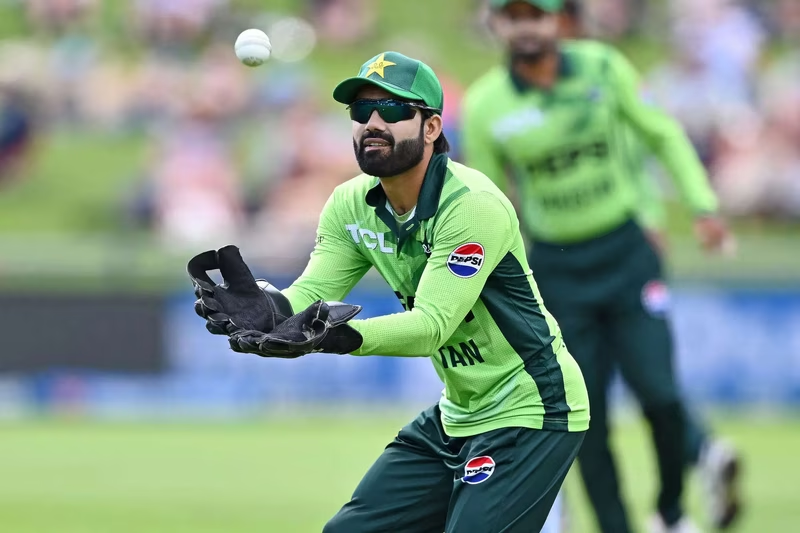In a move that has sent shockwaves through Pakistan cricket, star wicketkeeper-batter Mohammad Rizwan has officially refused to sign his central contract with the Pakistan Cricket Board (PCB)—a direct response to his unexpected demotion from Category A to Category B in the latest player retainership list.
Rizwan’s Stand: More Than Just a Pay Cut
On the surface, this might look like a dispute over salary brackets. But insiders say Rizwan’s refusal runs deeper. The 33-year-old, who has been one of Pakistan’s most consistent performers across formats, is reportedly seeking two key assurances from the PCB:
- Reinstatement of Category A status for senior, high-performing players regardless of recent captaincy changes.
- Clear, fixed tenures for national captains to ensure stability and accountability in leadership roles.
His stance comes just weeks after being unceremoniously removed as ODI captain—a decision that many fans and analysts viewed as abrupt and poorly communicated.
What the Central Contract Categories Mean
The PCB divides its centrally contracted players into three tiers—A, B, and C—based on performance, experience, and market value. Category A is reserved for the nation’s elite: top earners with the highest match fees and bonuses.
Rizwan’s demotion places him alongside emerging talents and fringe players, despite being Pakistan’s leading run-scorer in T20Is over the past three years and a mainstay in all formats.
Timeline of Rizwan’s Leadership & Contract Saga
| Date | Event |
|---|---|
| Sept 2025 | Rizwan leads Pakistan in ODI series vs. New Zealand. |
| Oct 10, 2025 | PCB removes Rizwan as ODI captain without public explanation. |
| Oct 25, 2025 | New central contracts released—Rizwan downgraded to Category B. |
| Oct 28, 2025 | Rizwan refuses to sign contract, demands policy clarity. |
A Pattern of Instability?
Rizwan isn’t the first Pakistani star to clash with the board over contracts and captaincy. In recent years, players like Babar Azam and Shaheen Afridi have also faced sudden leadership changes and inconsistent communication from PCB management.
Critics argue that the board’s reactive decision-making—often influenced by short-term results rather than long-term planning—has created an environment of uncertainty. For a player like Rizwan, who has publicly emphasized discipline and process, this lack of structure appears to be the final straw.
What Happens Next?
If Rizwan holds firm, he risks missing selection for upcoming series, including the high-profile T20I tour against South Africa and the 2026 ICC Champions Trophy preparations. However, his market value—bolstered by stellar PSL performances and global T20 league interest—gives him rare leverage.
Cricket analysts suggest this standoff could force the PCB to revisit its player management policies. As one former selector noted, “You can’t treat your best performers like replaceable parts and expect loyalty in return.”
For now, all eyes are on Lahore. Will the PCB engage in dialogue? Or will Pakistan’s cricketing drama escalate further?
